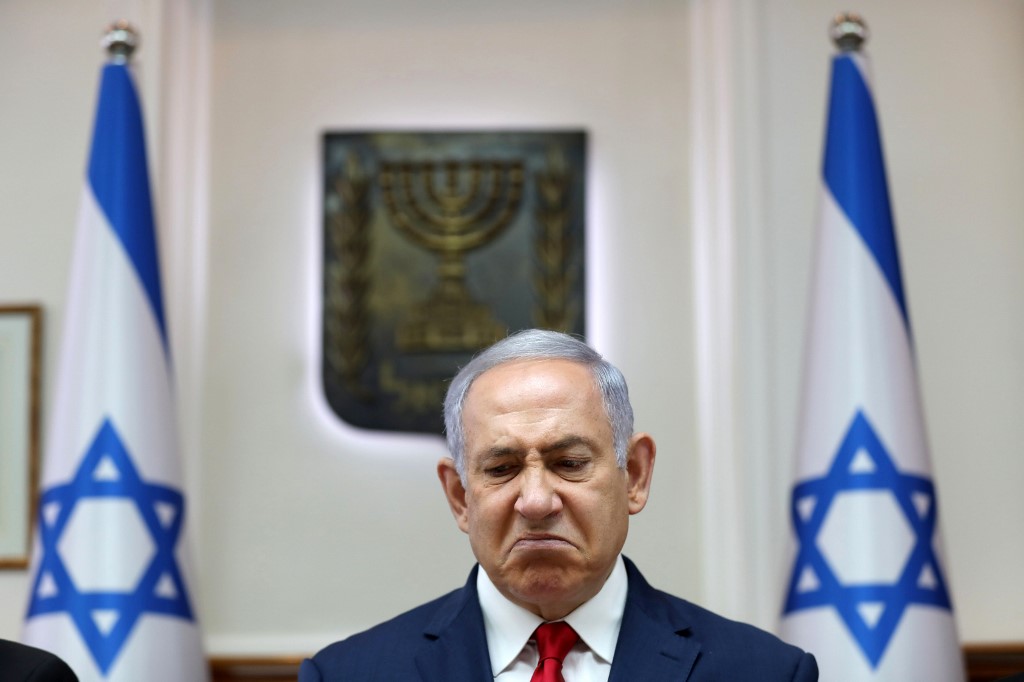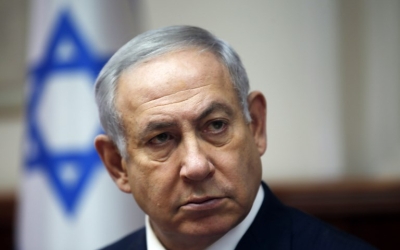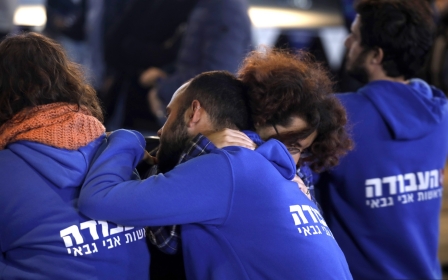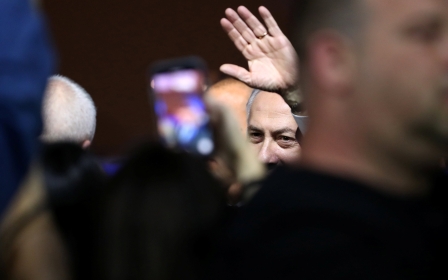Israel's zombie opposition tries to rise from the dead
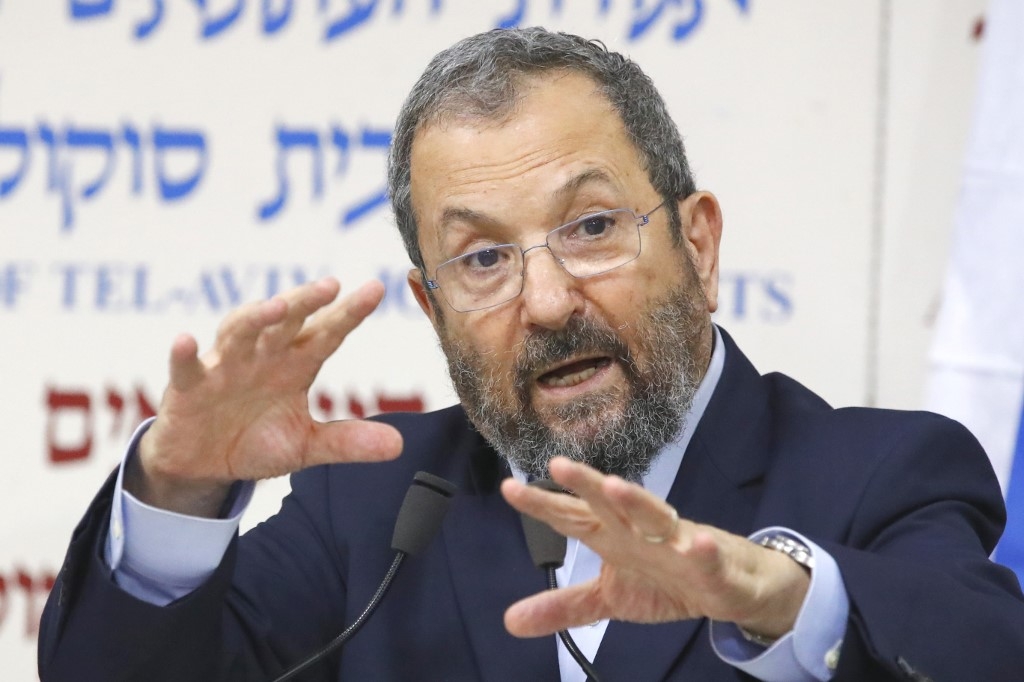
Political developments in Israel in recent weeks suggest that Prime Minister Benjamin Netanyahu is poised to win the September election with an even larger majority than he did in April.
Rival Ehud Barak’s new Israel Democratic Party - an ironic name for the party of a former prime minister remembered for a series of unilateral decisions, including his declaration in 2000 that there was “no partner for peace” with Palestinians - offers no substantive agenda.
Only Barak’s face decorates the party’s austere webpage, and at the bottom, the former prime minister’s Twitter onslaught offers the only clue about what this party stands for: replacing Netanyahu.
Lacking a vision
Barak used to head the Israeli Labor party, and it seems that both are on the same page today, with no political or economic plans for the future and no real differences from Likud, beyond a personal aversion to Netanyahu.
New MEE newsletter: Jerusalem Dispatch
Sign up to get the latest insights and analysis on Israel-Palestine, alongside Turkey Unpacked and other MEE newsletters
The Blue and White alliance led by Benny Gantz also lacks a clear vision for the future, mainly stressing its criticisms of Netanyahu as an individual.
Netanyahu earned this disdain by becoming the most populist leader in Israel’s history, lashing out daily against the media, police and judiciary. He has been doing this for decades, long before US President Donald Trump, Indian Prime Minister Narendra Modi, Brazilian President Jair Bolsonaro, Hungarian Prime Minister Viktor Orban and others created a global populist right.
The real question is whether the new formations in the Israeli opposition have any chance of changing the expected results of the fast-approaching September election
Barak chose as his second-in-command General Yair Golan, who has a reputation for speaking his mind, a rare trait for a general.
I attended an event with him in 2007, when he was responsible for Israeli forces in the West Bank. Golan acknowledged that the separation wall was motivated not by security, but as a means of segregating populations.
Later that year, Golan was reprimanded for using a procedure in which terror suspects are warned by local residents or family members that they have been targeted for arrest, which was deemed to be in violation of international law.
Challenging Netanyahu
More famously, Golan’s speech at the 2016 Holocaust Remembrance Day appeared to draw a comparison between modern Israeli sentiment and that of Europe in the 1930s.
Earlier this month, Golan had to issue a clarification after he spoke openly about alleged corruption around the failed attempt to appoint Brigadier-General Gal Hirsch as Israel’s chief of police back in 2015.
Meanwhile, the Labor party recently chose as its leader MK Amir Peretz, who chaired the party before and was briefly the defence minister under Prime Minister Ehud Olmert. He lost the leadership to Barak in 2007. It is therefore interesting that Barak this week suggested merging the Israel Democratic Party with Labor, and accepted taking a back seat.
Barak apparently doubts that he can raise the minimum number of votes to enter the Knesset on his own. Peretz is noteworthy because he is the only non-Ashkenazi Zionist party head who poses a challenge to Netanyahu.
Barak is currently waging a fierce media campaign in response to allegations about his relationship with US financier Jeffrey Epstein, who was arrested on 6 July and charged with sex trafficking and conspiracy. Barak worked closely with Epstein and had business ties. This is likely to impact his electoral campaign.
Regardless, the real question is whether the new formations in the Israeli opposition have any chance of changing the expected results of the fast-approaching September election.
Amir Levy, a right-wing journalist from the pro-Netanyahu Mida website, suggested that all the anti-Netanyahu movements point to the opposition’s desperation. On this rare moment, I find myself agreeing with Mida.
The security elite
Netanyahu’s supporters call Labor, Blue and White and the Israel Democratic Party the “old elite”. This is not some mysterious cabal, but rather a well-defined group that I call the security elite.
From David Ben-Gurion, to Yitzhak Rabin, to Barak, the Labor party has chosen mostly secular military men of Eastern European descent to head it.
The so-called “centre” of Israeli politics - which refuses to call itself “left,” and which is mainly busy trying to remove Netanyahu from office - is in fact a highly conservative group harkening back to the days in which the generals called the shots in Israel.
The Zionist opposition parties in Israel are currently unified by only two things: their hatred of Netanyahu and their yearning for the days of Labor militarism and silenced minority groups.
They are truly the “old elite,” as Netanyahu’s cronies say. Most Israelis are not secular, male, Ashkenazi military officers, and so Netanyahu’s victory in the upcoming election seems more certain than ever.
Yet, Zionist Israelis with the right to vote are not the majority in the area controlled by the Israeli government.
Palestinians, who form more than half of the population, are mostly disenfranchised, but still have a voice. The Zionist parties choose to ignore them, preferring instead to bicker over who will lead Israel in the coming years.
The views expressed in this article belong to the author and do not necessarily reflect the editorial policy of Middle East Eye.
Middle East Eye delivers independent and unrivalled coverage and analysis of the Middle East, North Africa and beyond. To learn more about republishing this content and the associated fees, please fill out this form. More about MEE can be found here.



